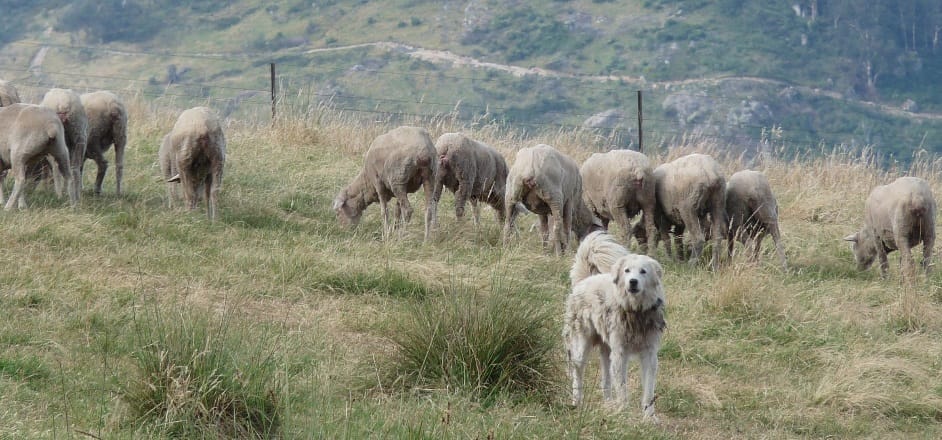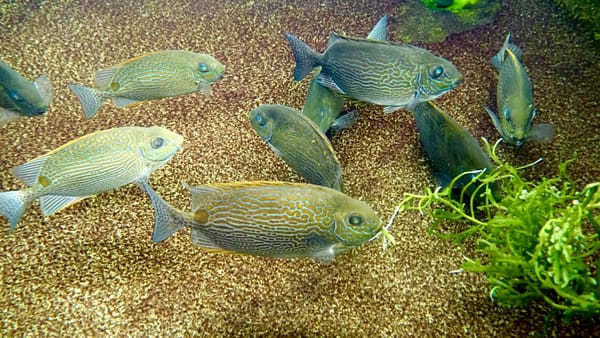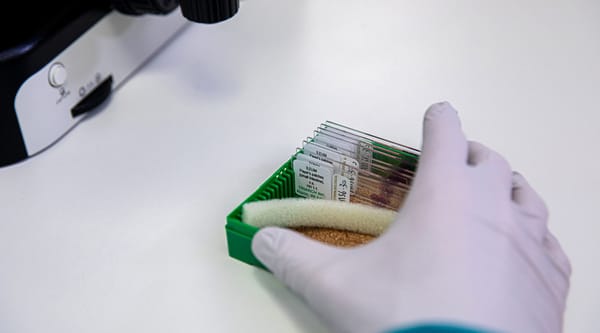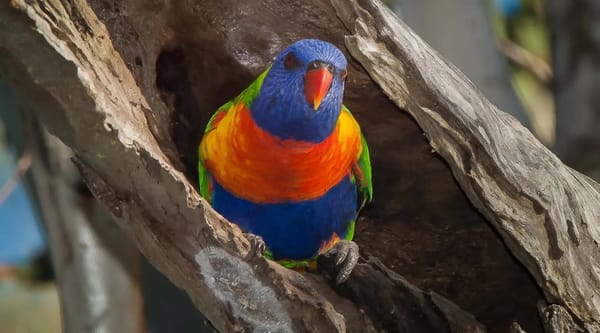Guardian dogs safeguard livelihoods and biodiversity
A landmark study has revealed how Livestock Guardian Dogs (LGDs) are changing predator behaviour and supporting conservation efforts in the process.

First published by University of Tasmania
A landmark study has revealed how Livestock Guardian Dogs (LGDs) are changing predator behaviour and supporting conservation efforts in the process.
Led by a team of experts from the University of Tasmania, Zoos Victoria, and the University of Melbourne, the study uncovers the pivotal role of LGDs, particularly Maremma sheepdogs, in reshaping red fox behaviour in north-eastern Victoria.
"The study shows that from an ecological viewpoint, the effect of LGDs on foxes is similar to a landscape of fear imposed by large wild predators," lead researcher Dr Linda van Bommel says.
“This shows that we can use these dogs to help us manage the impact of predators in many different situations.
"By protecting livestock, LGDs can help mitigate conflict between farmers and predators, offering a humane and effective alternative to lethal control methods."
Crucially, the study shows that Maremmas allow wild predators to coexist with farming.
“In other parts of the world, the predators that kill sheep and other livestock are often themselves rare and threatened species. Governments and conservationists want to protect them, but that creates conflict with farmers,” co-author Dr Christopher Johnson says.
“Our study shows that guardian dogs make it possible for livestock and wild predators to share the same landscapes without conflict.”
The study also shows that LGD use could result in less predation on native species which could help support efforts to preserve Australia's unique biodiversity.
“If foxes are more wary and spend less time hunting when Maremmas are around, that means that species of small wildlife that are threatened by foxes should be safer in places with Maremmas," Dr Johnson says.
“Therefore, sheep farmers will be able to keep more biodiversity on their farms if they use Maremmas to protect their sheep.”
In addition to reducing conflicts between farmers and predators, LGDs can also improve the welfare of livestock and decrease stress in farming communities.
"The presence of LGDs gives peace of mind to farmers, knowing that predator attacks on livestock are unlikely to occur," Dr van Bommel says.
"This alleviates stress for both the livestock and the livestock owners, contributing to improved animal welfare and the sustainability of farm businesses."




